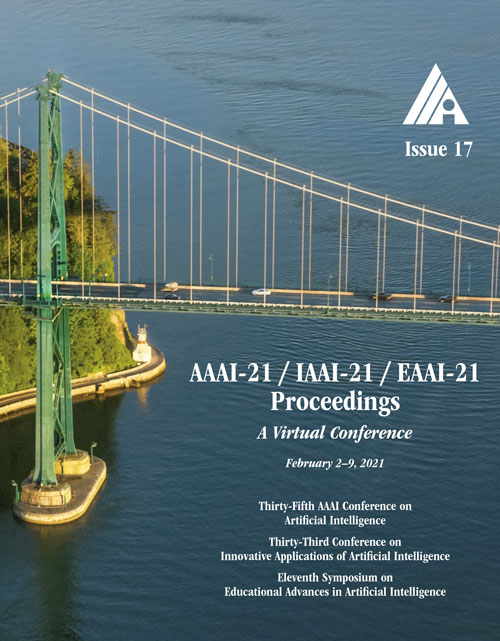AI-Infused Collaborative Inquiry in Upper Elementary School: A Game-Based Learning Approach
DOI:
https://doi.org/10.1609/aaai.v35i17.17836Keywords:
K-12 AI Education, Game-based Learning, Collaborative InquiryAbstract
Artificial intelligence has emerged as a technology that is profoundly reshaping society and enabling rapid improvements in science, engineering, and mathematics, as well as information technology itself. This has generated increased demand for fostering an AI-literate populace as well as a growing recognition of the importance of promoting K-12 students’ awareness and interest in AI. Although efforts are be-ginning to incorporate AI learning within K-12 education, there is little research exploring how to introduce students to AI and how to support teachers to integrate AI learning experiences in their classrooms. This is especially true at the elementary school level. A particularly promising approach for providing effective and engaging AI learning experiences for elementary students is game-based learning. In this paper, we explore how to introduce AI-infused collaborative inquiry learning into upper elementary school (student ages 8 to 11) using game-based learning. To ground the work in the realities of elementary school classrooms, we present insights from interviews with elementary school teachers to under-stand how best to support them in integrating AI into their classrooms. We then present the design of PrimaryAI, a game-based learning environment that supports rich problem-based learning activities within upper elementary classrooms centered on AI applied toward solving life-science problems. Finally, we discuss some of the challenges we face in bringing AI-infused collaborative inquiry learning to upper elementary students.Downloads
Published
2021-05-18
How to Cite
Lee, S., Mott, B., Ottenbreit-Leftwich, A., Scribner, A., Taylor, S., Park, K., Rowe, J., Glazewski, K., Hmelo-Silver, C. E., & Lester, J. (2021). AI-Infused Collaborative Inquiry in Upper Elementary School: A Game-Based Learning Approach. Proceedings of the AAAI Conference on Artificial Intelligence, 35(17), 15591-15599. https://doi.org/10.1609/aaai.v35i17.17836
Issue
Section
EAAI Symposium: Full Papers

